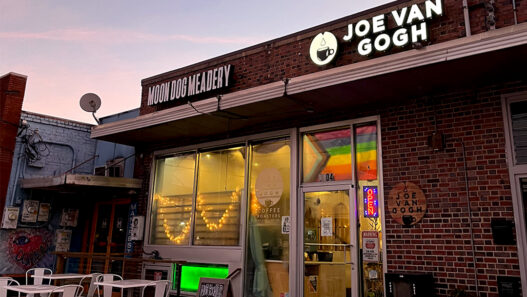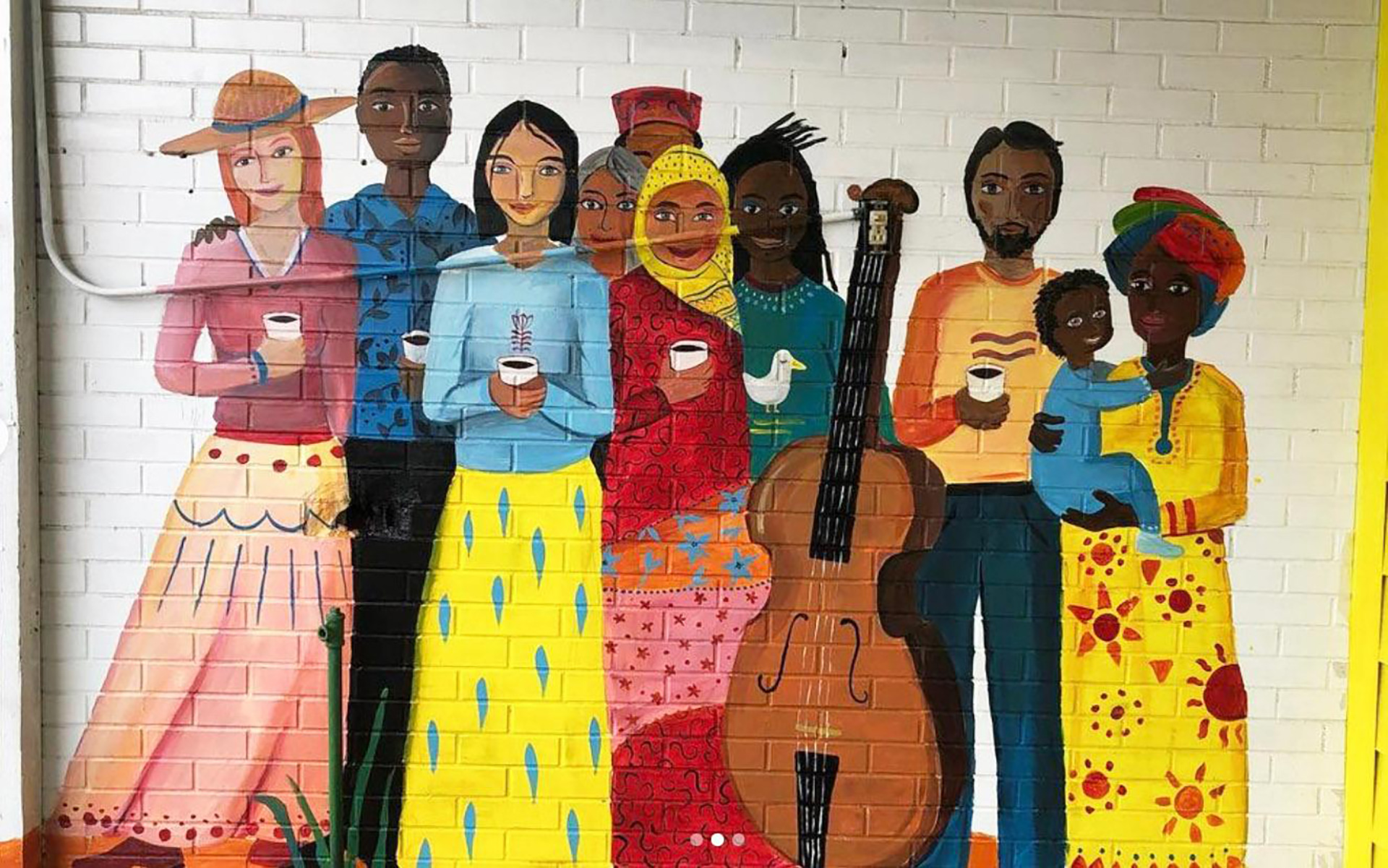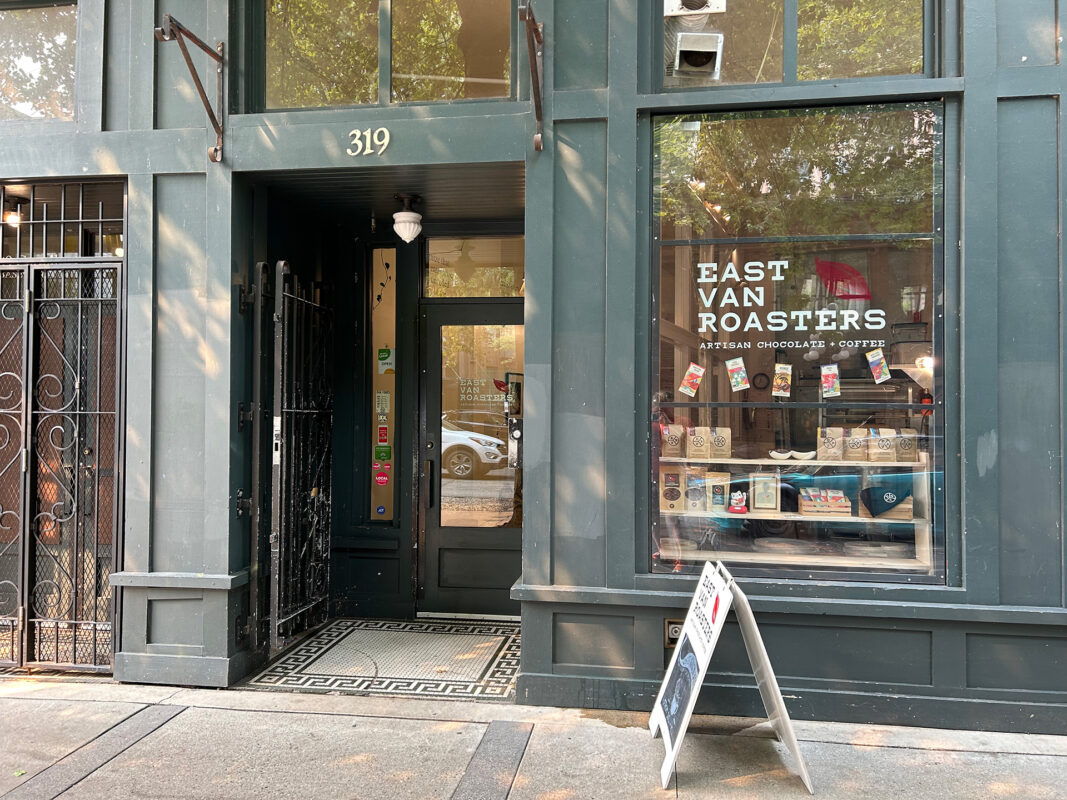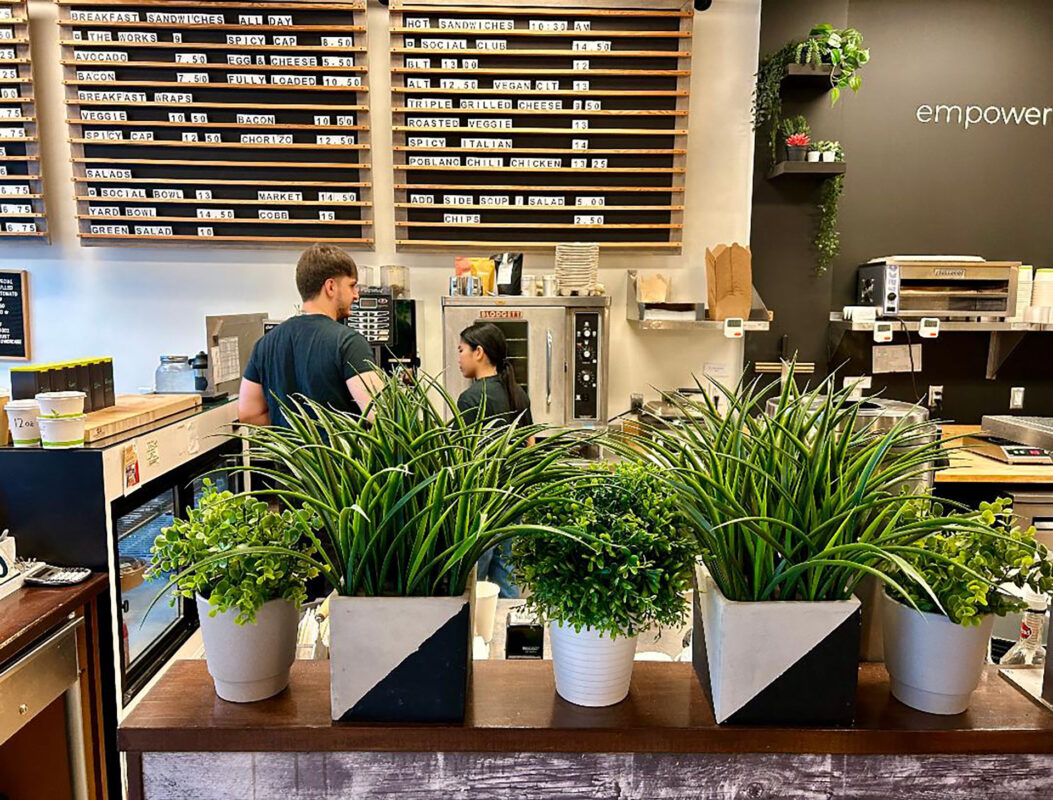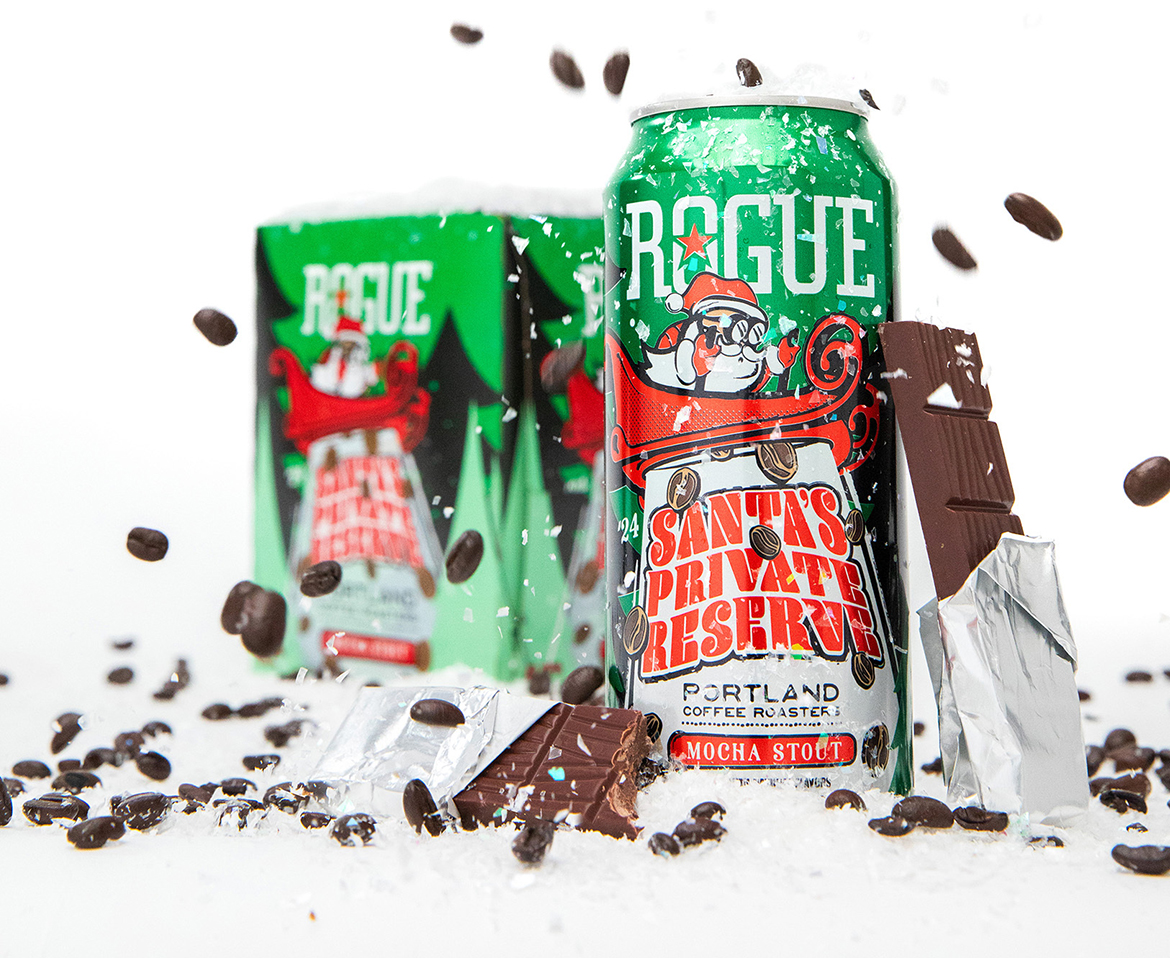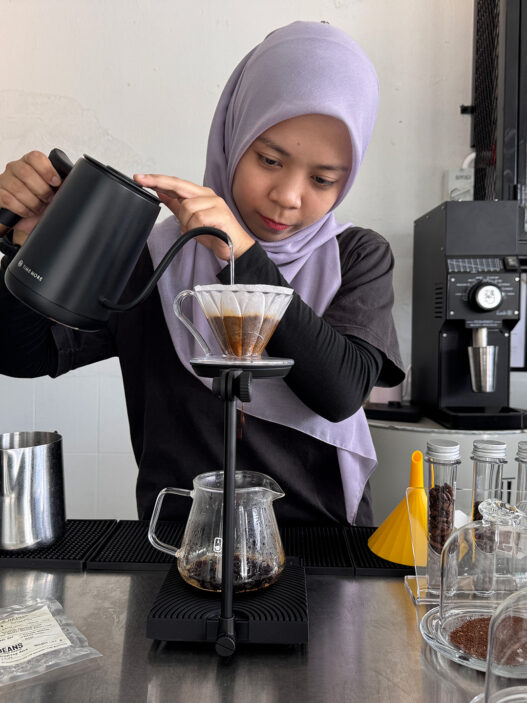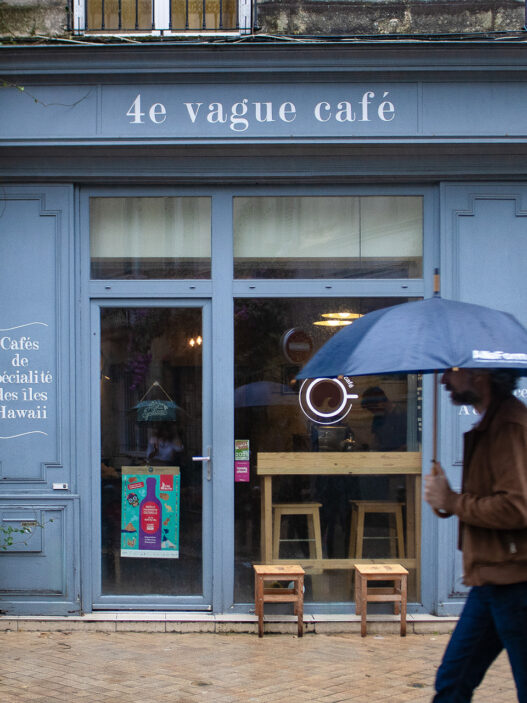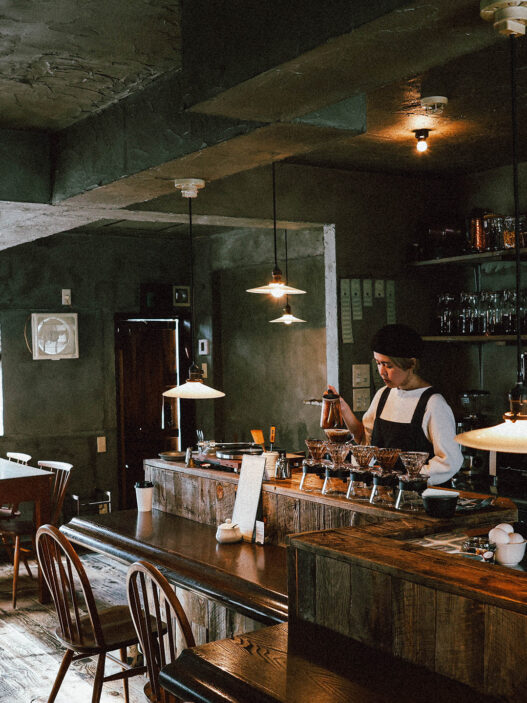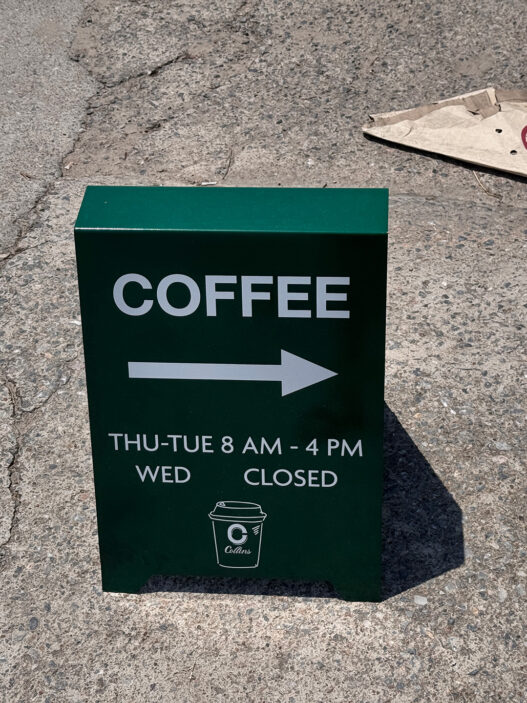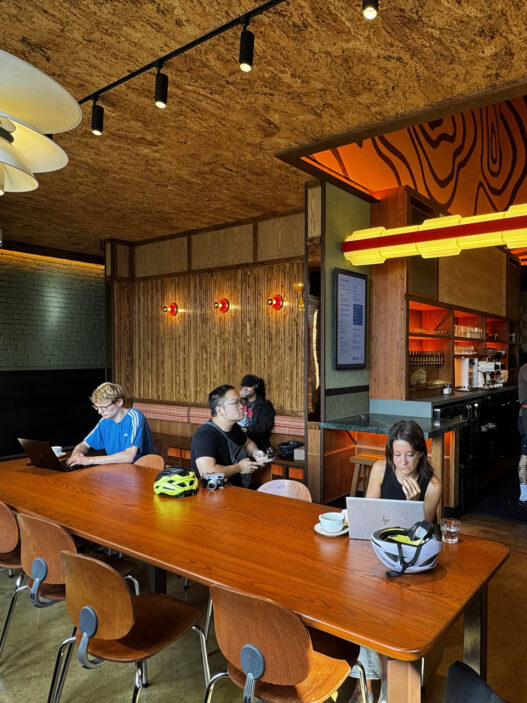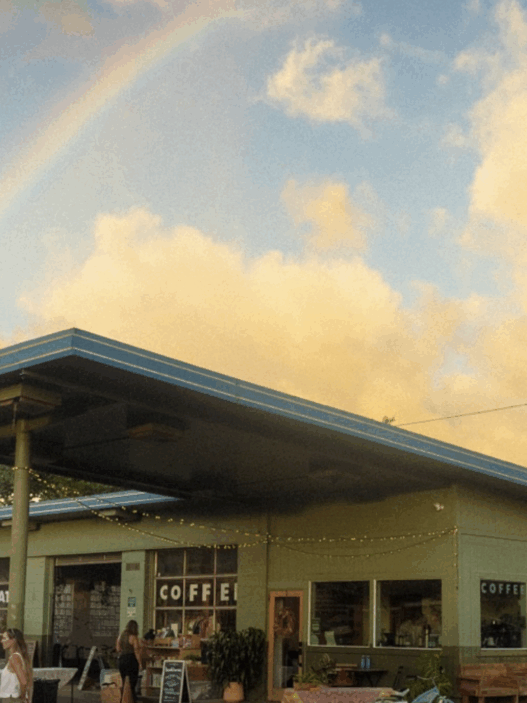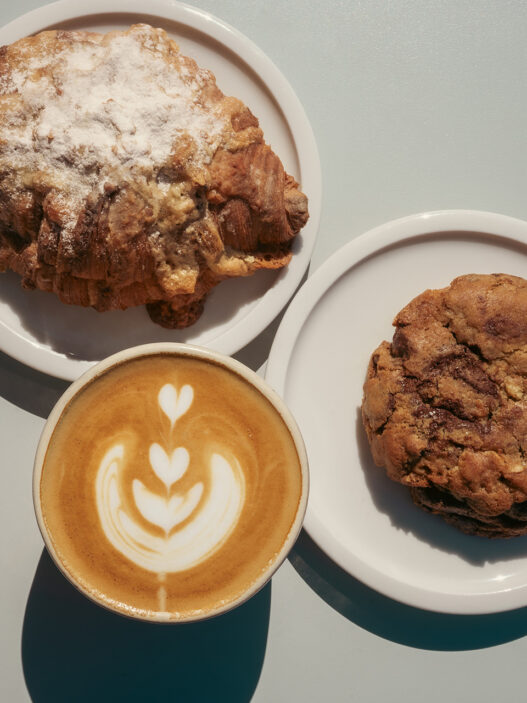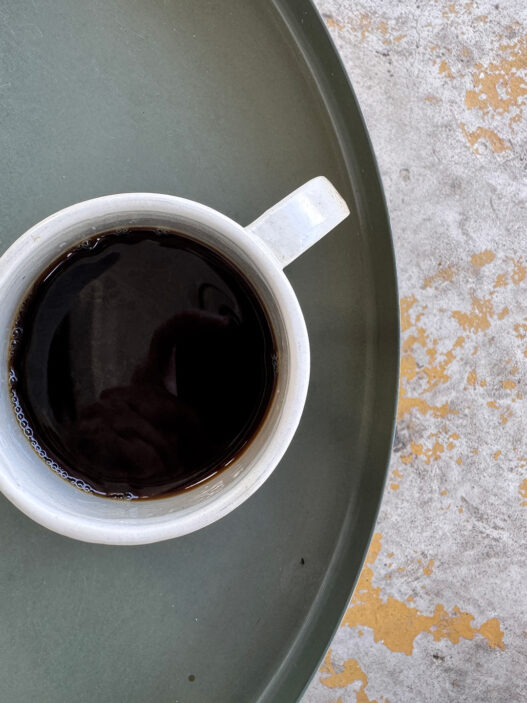There have been various studies that claim coffee may be good for you, but there is growing evidence that cafes can be good for others, too. More cafes are emerging as social enterprises and non-profits with specific mandates to train and hire baristas and other employees from vulnerable populations. As with most everything, there is guidance online for how a charity or initiative can start a non-profit cafe. Featured here are cafes that employ at-risk women, persons with mental health challenges, “prison leavers,” refugees and new immigrants, and people with developmental or intellectual disabilities.
East Van Roasters
Take, for example, East Van Roasters, which has just added a second location, both situated within the broader boundaries of what is known as Vancouver’s Downtown Eastside (DTES), home to thousands of securely housed residents but also a hub for the city’s unhoused population. To many patrons, East Van Roasters is simply known as a roastery for both fine coffee and chocolate, but it has a greater purpose, that being to support vulnerable women. As a social enterprise associated with Atira Women’s Resource Society, the cafe provides employment training for up to a year for women deemed at-risk.
“We are more than just a cafe,” says General Manager Jen Hallen, “We empower women in the Downtown Eastside through a harm reduction and trauma-informed approach, creating meaningful change in our community.”
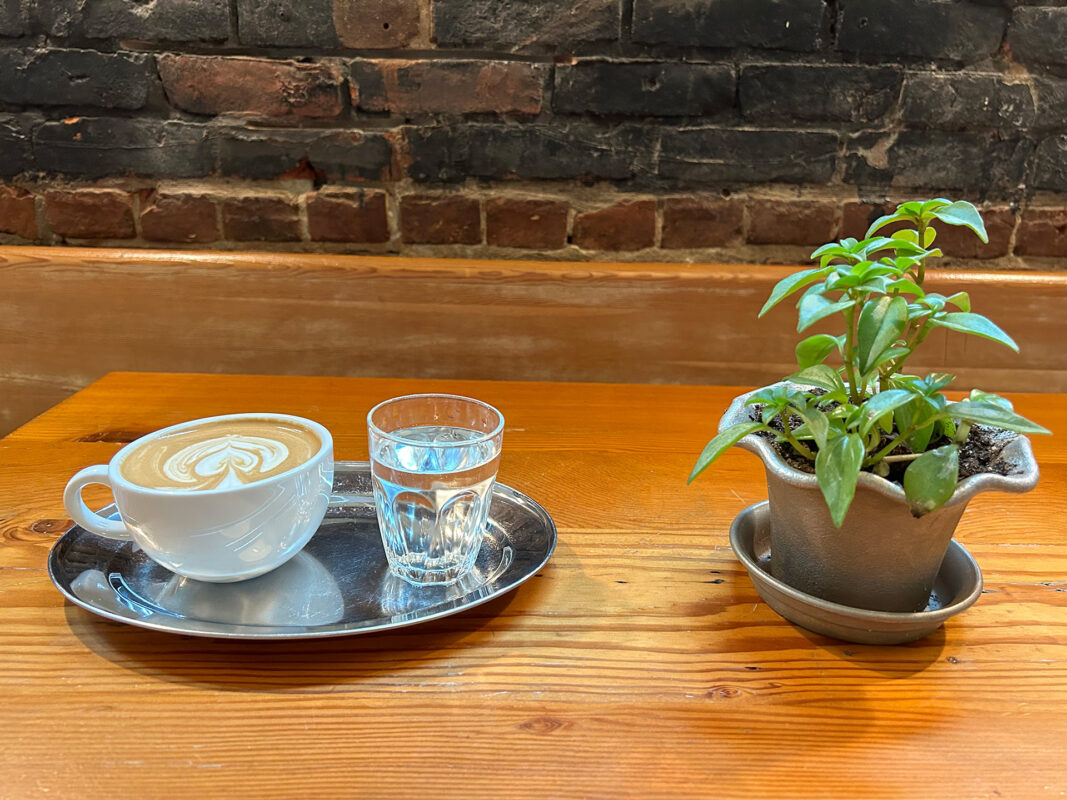
After training and regular work at EVR, past employees have gone on to work in graphic design, management and advocacy positions, and establish their own small businesses.
Another offering from the cafe comes through its suspended drink program, a pay-it-forward structure that allows patrons to donate so that needier drop-in customers can have a complimentary coffee.
Both locations are in historic brick buildings in Gastown with mosaic-tiled floors and exposed piping. There’s a touch of class that comes with ordering a coffee to drink at either cafe. The order is brought to the patron’s table, served on a small silver platter, with a glass of water. Coffee and chocolate are prepared with a high-efficiency 15-kilogram Loring roaster. As a particular treat, a tasting flight of chocolates goes well with any coffee order. The Empress coffee blend is recommended as a purchase for home.
According to Hallen, “The community’s response to the cafe’s social advocacy component has been overwhelmingly positive. We’ve built strong connections and there’s a growing understanding of our mission.”
Social Crust
Another innovative cafe in Vancouver is Social Crust, a social enterprise associated with the non-profit Coast Mental Health. It employs youth facing mental health challenges and other barriers, teaching barista and catering skills while creating a sense of connection and purpose.
Social Crust begins by introducing young adults within its mandate to Culinary 101 Camps, allowing participants to acquire job skills in a supportive environment. Many then go on to work at the cafe, which features a full line of espresso drinks with coffee by Toronto’s Reunion Coffee Roasters and specialty Blume drinks such as matcha coconut lattes and beetroot oat lattes. It also offers light breakfast and lunch options such as bowls and wraps.
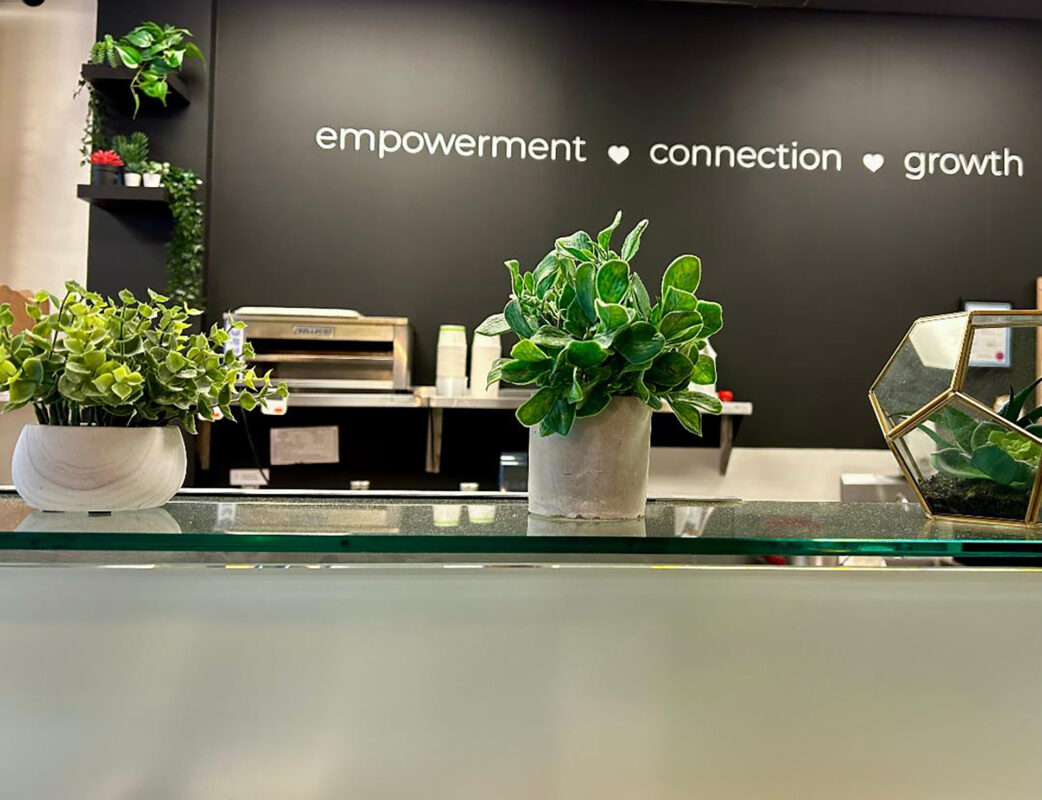
The cafe is a bright sanctuary with light birchwood tones and greenery. The words empowerment, connection and growth are prominently stencilled on a wall in the prep area while Coast Mental Health’s motto—Compassion, Courage, Recovery—appears on another wall. A mini library includes cookbooks and mental health titles such as Gabor and Daniel Maté’s The Myth of Normal, and Bruce Perry and Oprah Winfrey’s What Happened to You? Conversations of Trauma, Resilience, and Healing. As well, there are card decks on mindfulness and dealing with anxiety, tangible resources that can be perused while sipping an espresso.
Redemption Roasters
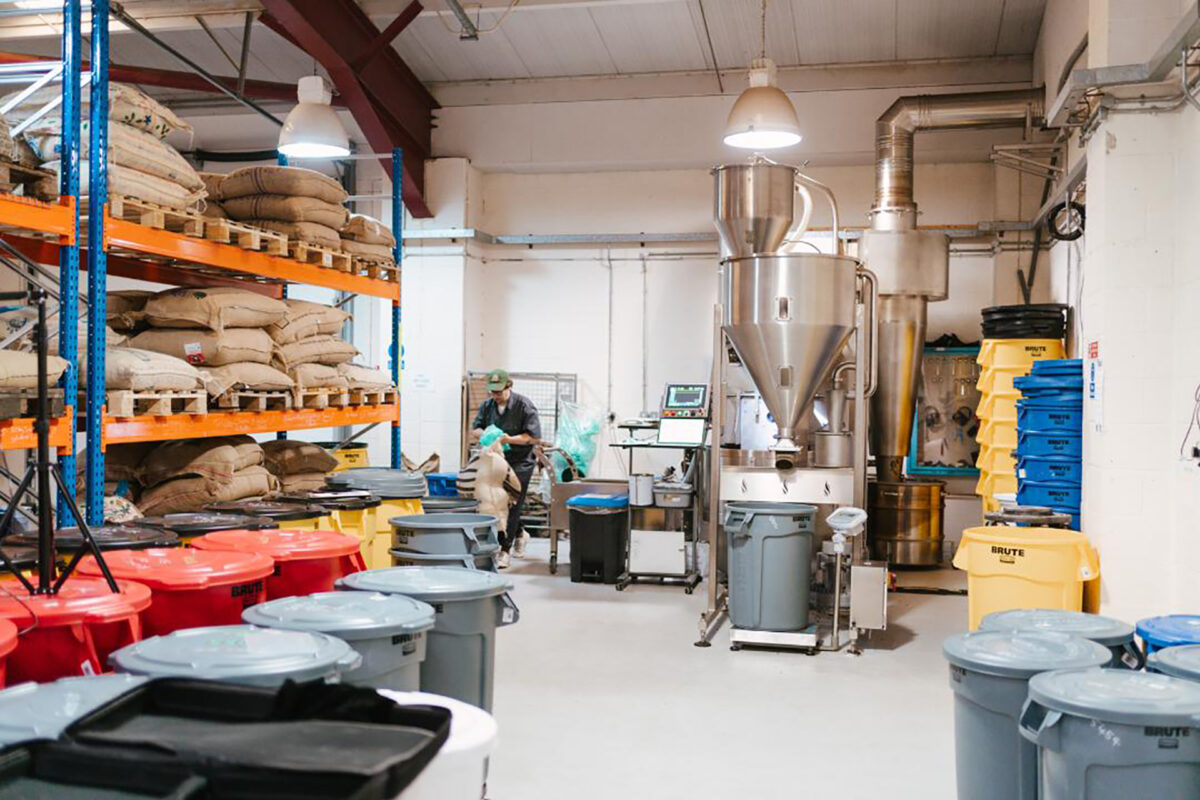
With ten cafes and a kiosk in London, Redemption Roasters is making a significant social impact. It starts with its roastery, based in HMP (His Majesty’s Prison) The Mount in the city of Hemel Hempstead, England. All coffee is roasted there with prisoners trained and paid to learn and participate in the process. As well, Redemption offers barista and technician training in two other UK prisons with the goal of hiring candidates who complete the program.
As a for-profit social enterprise, Redemption strives to train and hire people who have served time in the criminal justice system as well as those deemed at-risk of offending based on specific criteria. As stated in its 2023 Social Impact Report, Redemption recognizes that “prison leavers” traditionally experience high levels of unemployment and recidivism and the business strives to help change that. Last year, 30 prison leavers and persons at-risk were employed by Redemption, representing one-fifth of its workforce.
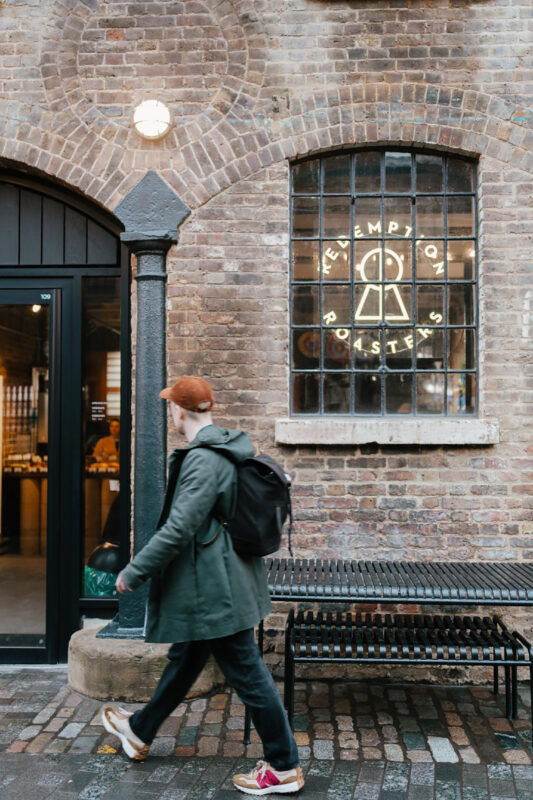
With the help of Redemption’s caseworker, participants are supported based on a bigger picture focus for success that includes ongoing training and monitoring their confidence, sense of community, and housing situation. While 48% of persons released from prison have secure housing, the figure is 86% for Redemption’s participants.
According to “Participant M,” who completed the barista course in prison and gained employment at a Redemption cafe, “Me and my co-defendants were at an extremely high risk of reoffending and I honestly believe that it, if wasn’t for Redemption, I would be back in prison right now.”
In sourcing beans, decisions are based on three principles: (1) rehabilitation, (2) sustainability, and (3) female economic empowerment. Broadening its rehabilitation focus, one of Redemption’s partnerships is with Colombian farmers who have switched to coffee production after having been previously connected to paramilitary groups.
Refuge Coffee Company
The word “welcome” appears all over the website for Refuge Coffee Company which describes itself in a YouTube video as “a nonprofit fueled by the mission of welcome.” The company’s focus is on training and employment for new immigrants and refugees. At any given time, about fifteen immigrants or refugees are employed. Their term with the company lasts from 12 to 18 months.
Recognizing that its training program goes beyond the acquisition of barista skills, Refuge’s website notes how the program, with competitive wages, provides participants “a chance to pause, breathe, and dream about their lives in America.”
Refuge Coffee has grown from its base as a bright red food truck in Clarkston, Georgia, which has been referred to as “the most diverse square mile in America” and “the Ellis Island of the South.” Refuge now has two other coffee shops in the Atlanta area.
As a non-profit, Refuge relies, in part, on donations, which adds an element of indebtedness it sees as paying off by “do(ing) good work.” Refuge Coffee’s 2024 annual report highlights an intention to create “a fun, multi-ethnic, comfortable gathering place,” a notion reinforced by the diversity of people represented in vibrant murals by Teresa Abboud at the Clarkston and Midtown locations.
Lil E Coffee Cafe
Another cafe with an overriding goal of making a difference is Lil E Coffee Cafe, which began in Calgary in 2021 and opened a second cafe in Toronto last year. Lil E oozes positivity, beginning with its mission which includes the bold statement, “Greatness starts with a belief that each person has what it takes.” It strives to provide life and employment skills to persons with intellectual and developmental disabilities at a time when far less than half of persons with developmental disabilities have jobs. The non-profit cafes are named after Founder Paul Constance’s young daughter, Ella, who has Down syndrome.
A prime example of how Lil E supports its employees is by having recipe cards with both written and visual information to represent how to make various espresso beverages. Cards include ingredients and show the proportions of each in order to create the drink. Employees work hard to perfect their latte art while the preparation of drip coffee orders is simplified, in part, by a Fetco brewer.
Lil E wishes to build 10,000 careers. By hiring persons with intellectual and developmental disabilities, the coffee company showcases them in highly visible roles, increasing community awareness and connection. The hope is that, after honing their skills, participants can then move on to employment elsewhere in the community and, thus, free up space for another person to acquire a similar skillset.
Sprudge readers can support these cafes in person when living nearby or while visiting the area. They can also engage with them by following and posting comments on Instagram. As well, each cafe includes information on its website for how to make donations. There’s nothing like a good cup of coffee but these cafes exemplify the fact that sometimes the goodness goes beyond the cup itself.
Gregory Walters is a writer based in Vancouver and Seattle. Read more Gregory Walters for Sprudge.






